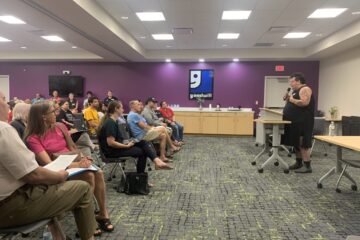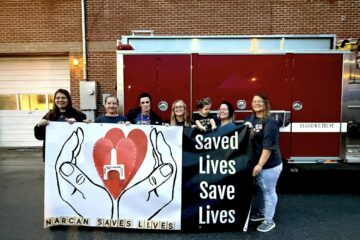In 2019, Cabell County, West Virginia faced a sharp rise in HIV infections among people who inject drugs (PWID). A new report, “Communicating During an HIV Outbreak Among People Who Inject Drugs — West Virginia 2019,” details how public health officials used communication strategies as a critical part of the outbreak response.
The West Virginia Bureau for Public Health (WV BPH), Cabell-Huntington Health Department (CHHD), and the CDC formed a cross-agency communications team. Together, they developed a plan to reach three main groups:
- People who inject drugs
- Healthcare and social service providers
- The general public
The team recognized that stigma — against drug use, syringe services programs (SSPs), and HIV itself — was a major barrier to preventing infections and connecting people to care. Instead of relying on statistics alone, they reframed public health messages around local community values, such as protecting families, caring for neighbors, and promoting self-sufficiency.
Some key strategies included:
- Launching billboards, gas station ads, and dating app messages promoting HIV testing without using stigmatizing imagery.
- Distributing discreet, water resistant pocket guides with harm reduction tips to people experiencing homelessness.
- Training frontline workers and service providers on HIV basics and stigma reduction.
- Supporting local service agencies with educational materials that better reflected the diversity of the community.
- Developing consistent, shared messaging across local, state, and federal agencies to avoid confusion.
One major challenge noted in the report was the difficulty of directly engaging people affected by the outbreak to shape the communications strategy — an important lesson for future responses.
The bottom line: Clear, compassionate communication is not just a side effort — it is a critical part of public health response, especially when battling the stigma that fuels HIV outbreaks. Collaboration between trusted local organizations and public health experts was essential to building trust and providing lifesaving services.
The successes — and lessons learned — from this effort are highly relevant today as West Virginia continues to face overlapping public health challenges related to HIV, hepatitis C, and overdose.
Sources and further reading:


